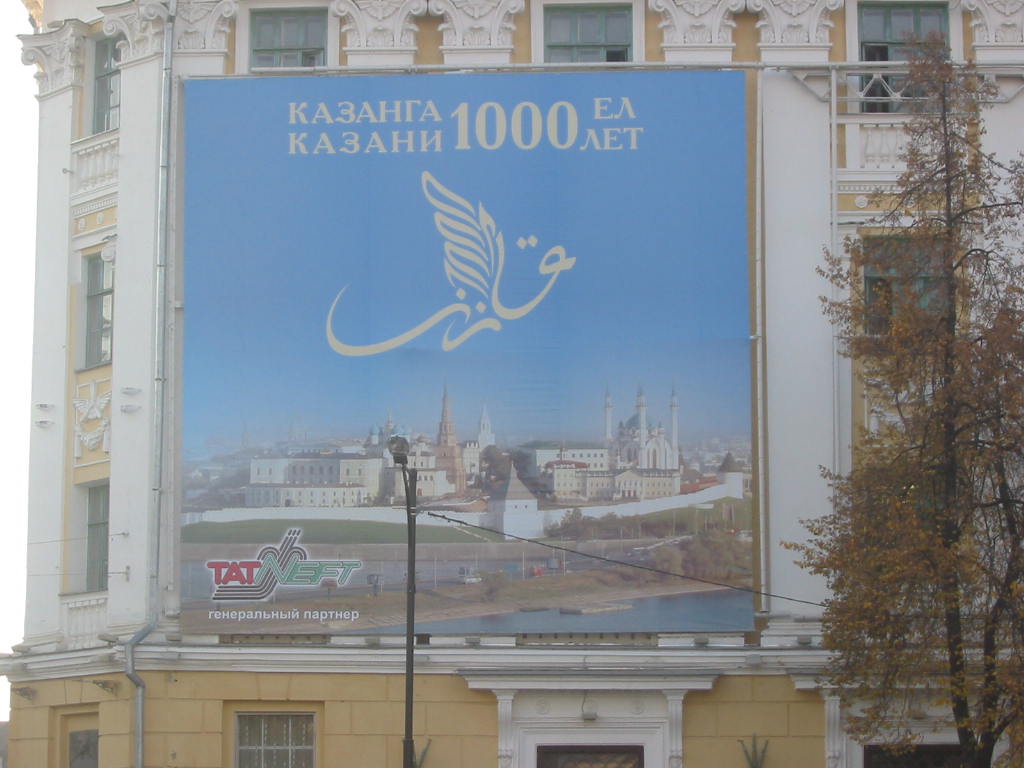
Draft Language Law Could Ultimately End Non-Russian Language Instruction, Moscow Ethnographer Says
Publication: Eurasia Daily Monitor Volume: 9 Issue: 202
By:

In the most serious attack on the status of the non-Russian republics and their titular nationalities since Soviet times, new legislation now under consideration in the Russian Duma would allow parents and students to choose whatever language they would like to study, an ostensibly balanced measure that Vladimir Zorin, the deputy director of the Institute of Ethnology and Anthropology of the Russian Academy of Sciences, says in fact could “reduce to nothing the demand for republic languages” and hence the survival of many of the Russian Federation’s non-Russian nationality (izvestia.ru/news/538909).
On Friday (November 2), “Izvestiya” reported that the Duma’s Nationality Affairs Committee is preparing for introduction an amendment to the country’s legislation on the languages of the peoples of the Russian Federation. Under current law, all pupils in Russia learn Russian, the state language, but those living in the non-Russian republics are also required to study the language of the titular nationality. However, the amendment, according to the committee’s chairman, Gadzhimet Safaraliyev, would eliminate that requirement and specify that “every child or its parents can choose” what language to study regardless of whether they live in a non-Russian republic or not (izvestia.ru/news/538909).
The Duma committee has decided to consider this amendment, the Moscow paper reported, because of appeals from the parents of pupils from Tatarstan and Bashkortostan. They have asked, “Izvestiya” continued, for Moscow to “interfere in the educational policy of these territories” because “the parents consider that the authorities of the republic are violating the federal law ‘on the state language’ and do not see reasons why their Russian-language children must study Tatar or Bashkir.” To press their case, the angry parents have launched a website and created an Internet community.
Olga Artemenko, the head of the Center for Ethno-Cultural Strategy of Education of the Federal Institute for the Development of Education, told the paper that “Nowhere is it written” that “Russian should be treated at the same level as a republic language. The subject can develop its own laws, but they must not contradict the federal law on the status of the state language,” a language that “services all spheres of society,” in contrast to republican ones, which “function [only] locally.”
The educational authorities in both Bashkortostan and Tatarstan say that republic law requires the obligatory study of their national languages alongside the state language, Russian. But as Artemenko notes, the republic laws speak only about “voluntary study” of languages, and the republic governments do not require the study of the republic languages in private schools on their territories.
According to “Izvestiya,” members of the Duma committee are convinced that it is not just Russian parents who want to see Moscow act in this way: “A majority of Tatars, Bashkirs and others acknowledge that they would give preference to Russian in instruction as a more useful language.” But at present, Safaraliyev, the committee’s chair, told the paper, “Moscow officials and local authorities have allowed a situation to develop in which republic schools are undercutting Russian, the state language.” If the proposed amendments are approved, he continued, parents and pupils, not republic officials, will have the right to choose whatever language they want, apparently confident that most would choose Russian rather than the republic languages.
Such a change would have dramatic consequences, as Zorin points out. “From the point of view of traditions and inter-cultural dialogue, the study of republic languages by representatives of the non-titular nation is a positive practice,” as long as it does not involve “the violation of the rights” of children and their parents. But he concedes that if language of instruction does become a question of individual choice, more and more parents will choose Russian and “the popularity of the Tatar, Bashkir and other national languages will significantly be reduced” (izvestia.ru/news/538909).
Two aspects of this proposed development are critically important. On the one hand, this attack on the prerogatives of the national republics—one fully consistent with Vladimir Putin’s policies but cast in the form of a liberal innovation—is focused on Tatarstan and Bashkortostan, two Middle Volga republics that have also been in Moscow’s sights in recent weeks for supposedly allowing or even encouraging the rise of radical Islam. Thus, it is likely that in the short term at least, this amendment, if approved, will be used to weaken the governments in Kazan and Ufa still further.
And on the other, precisely because languages are so central to the survival of the non-Russian republics, this proposed legislation is certain to spark resistance from many non-Russian leaders, not only in the Middle Volga but in the North Caucasus and elsewhere as well. Indeed, by attacking what many non-Russians see as the core of their national identities, Moscow in this instance has guaranteed that non-Russian elites not only will oppose it but also become more nationalist and even independence-minded than they have been since the early 1990s.




